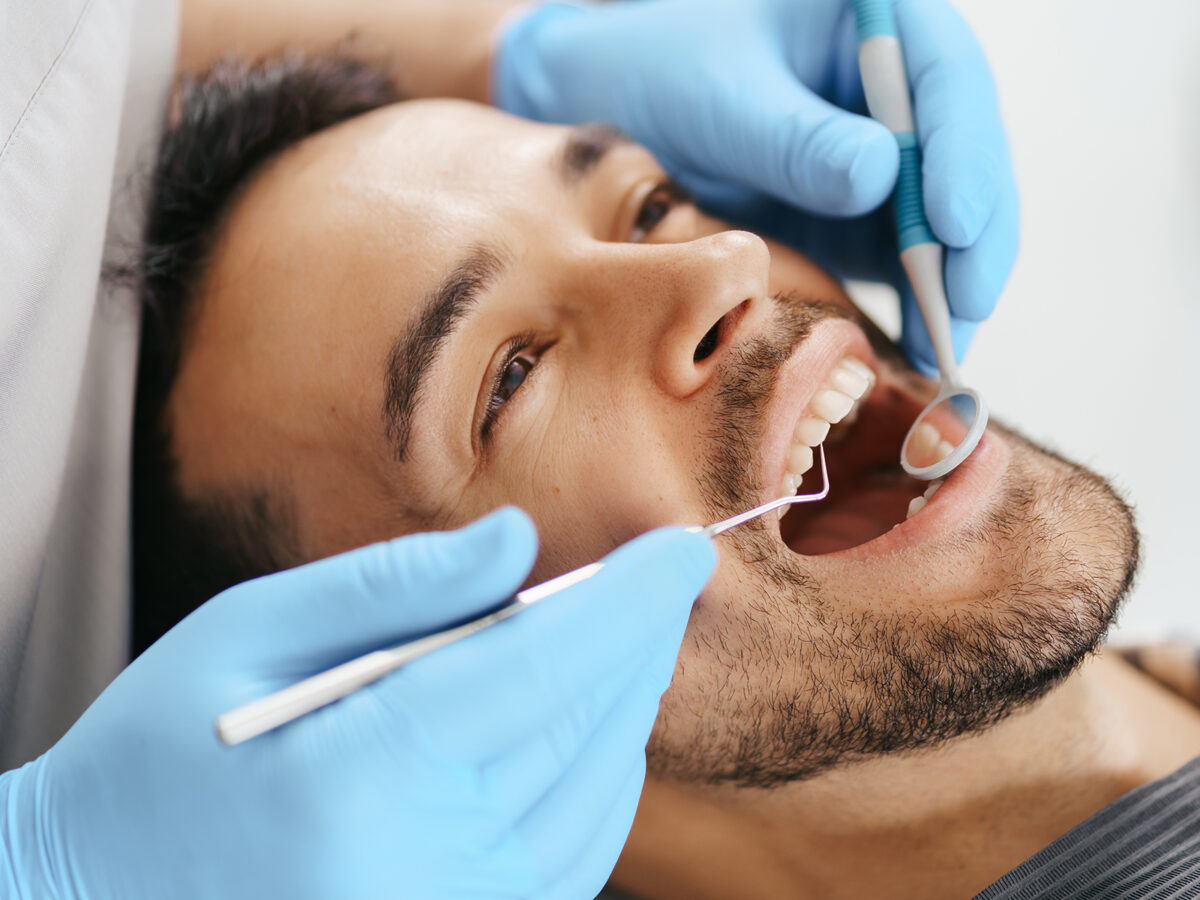Blog
Dental hygiene tips for healthy teeth & gums

What Does Early Oral Cancer Feel Like?
The development of cancer is generally caused by abnormal mutations and genetic variations in cells’ DNA. The first sign of oral cancer is a primary lesion in the tissues. A variety of sources can produce it, including salivary glands, lymphoid tissues, tonsils, and oral mucosa cells.
People often get scared as soon as they hear about oral cancer. There are a lot of things that contribute to this disease apart from bad dental health. Therefore, it is very vital to have proper information about its symptoms, precaution, and treatment to combat it in a better manner.
And in this article, we will discuss everything related to the same so that you can have a clear idea and take the necessary precautions quickly!
How does oral cancer happen?
Before jumping straight onto the symptoms let us first see why oral cancer happens:
It can be very overwhelming to see and read about different reasons and how it happens. So, here we have segregated and classified how oral cancer happens:
- Teratoma – Occurs when dental tissues have a certain histology.
- Adenocarcinoma – This arises from any of the salivary or tonsillar tissues.
- Melanoma – An abnormal growth of pigmented cells in the mucosa of the mouth.
These are all the reasons that can cause oral cancer in individuals. Apart from the above-stated reasons other factors such as too much alcohol, bad dental hygiene, tobacco, smoking, etc also contribute to the same.
Therefore it is necessary to stay away from such habits. They not only harm your dental health but also impacts your overall health.
What are the early symptoms of oral cancer?
Sometimes early symptoms are overlooked because they are difficult to spot. Lip, salivary gland, mouth, soft palate, and tongue cancers can develop in a variety of places.
There are several warning signs of mouth cancer depending on where it first develops in the mouth. The reason why so many dentists perform a brief screening for mouth cancer during a routine dental checkup is that they are committed to their patient’s dental health.
The mouth, lips, face, neck, and other body parts are often examined for possible cancerous signs. The importance of seeing a dentist regularly extends beyond maintaining a healthy mouth and teeth.
As a further protective measure, you learn to recognize the early signs of oral cancer in order to notify your doctor right away if they occur.
Here are a few prominent signs of mouth cancer:
- There may be lesions on the tongue, lips, or other parts of the mouth.
- Soft tissues around the mouth often exhibit a white or red patch as an early symptom.
- A burning sensation in your mouth occurs when the tumor grows.
- There are problems with the tongue and swallowing in the later stages.
- Numbness and pain in different areas of the mouth.
- Tooth loss.
- A spot that cannot heal due to roughness, crust, or erosion.
- Fitting of the teeth changes.
- Symptoms of dental changes or soreness that do not resolve within two weeks.
Some precautionary measures and treatment
Don’t smoke and get your teeth checked twice a year. Whenever possible, avoid chewing gum and using tobacco leaves. For UV protection, apply sunscreen balms to your lips and body lotions. Examine your teeth, tongue, and throat for any signs of illness. Eat foods that are rich in nutrients.
Last but not least, cancer cells or tissues can be removed through surgery, radiation, or chemotherapy. The tumor can be easily removed without causing any damage during surgery, depending on its size and location. The use of x-rays during surgery for destroying small tumors can be done using radiation therapy.
Cancer cells are killed by chemotherapy drugs. Your doctor will decide how you will stimulate medications; it can be either through veins or orally. Depending on how large and where the tumor is located, a particular drug will be prescribed. It is possible to combine chemotherapy and radiation therapy if the tumor cell is larger.
But whatever the case might be, you must talk to your healthcare provider and take precautions as suggested by them if you notice any of the above-mentioned symptoms.
